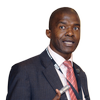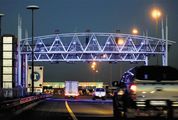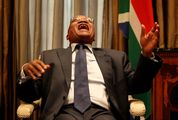SMALLER, more agile and entrepreneurial enterprises are giving traditional banks a run for their money in providing for the banking needs of the lower-income market. The tie-up between MasterCard and Blue Label Telecoms, allowing spaza shops in townships and rural areas to offer card services to their customers, is an example of how this might work.
By partnering with Blue Label Telecoms, MasterCard gains access to the low-income market through a company with a deeper understanding of this segment, says head of the inclusive markets programme at the Gordon Institute of Business Science, Tashmia Ismail.
"Blue Label is small, agile and entrepreneurial with global reach, making it a good partnership for MasterCard," she said.
Blue Label Telecoms already has a network of point-of-sale terminals, used to sell prepaid airtime and electricity vouchers in spaza shops across South Africa. It has similar operations in Mexico and India.
The devices will be upgraded to allow card payments, provide cash-backs and offer cash withdrawals. Traders will be able to accept chip and PIN, and contactless payment cards for goods and services and to sell Blue Label’s prepaid vouchers using a single device.
Blue Label’s "street-smart approach" in this market gives it a competitive advantage against the traditional banks, said the company’s financial services executive Angus Brown.
"Our target market is not the large retailers already well-serviced by the large banks, but those small stores that struggle to get bank facilities and are typically places the banks are a bit nervous to go," he said.
The potential target market includes about 100,000 spaza shops and about 20,000 licensed taverns which will benefit by reducing the amount of cash they handle, while Blue Label Telecoms receives a merchant fee, thus adding an extra revenue stream. MasterCard gains from increased transactions through its systems.
Blue Label is running a pilot project to test the processes and plans to start rolling out 22,000 devices from 2014.
The "big four" banks have all targeted the low-income market, as evinced by Standard Bank’s AccessSave account, which makes it easy to open accounts anywhere, through an agent, with a smartphone. "While you have to give Standard Bank kudos for actually pioneering a path into township markets with the Access model and cleverly innovating the spaza store bank, they still have teething problems, with insufficient scale, poor collaboration and the number of working units on the ground," said Ms Ismail.
"You have to ask, is it fast enough when you have small, agile players like Blue Label entering the market?"
Head of inclusive banking at Standard Bank Audrey Mothupi has told Business Day previously that inclusive banking requires a complete rethink of the design of the banking system, as well as its structures and governance. It also needs full board support — which Standard Bank has, she said.
"We have invested a huge amount in technology in realisation that this is a large market," Ms Ismail added.
Though the Blue Label-MasterCard tie up is not in direct competition with the banks — customers still need bank accounts and cards — it will put pressure on the banks to create entrepreneurial, innovative teams and to change the structures and reporting systems to enable quicker responses.
Dr Daryl Collins is director at research group Bankable Frontiers Association, which is involved in a three-year global study, funded by the Bill & Melinda Gates Foundation, to find ways to encourage useful savings behaviour by poor households.
She said it is difficult within a large traditional banking institution to persuade people internally that the lower-income market needs to be served differently.
"Some in the donor space think large banking institutions just don’t care, but it is far more complicated than that. You need a very strong champion in the bank who can think flexibly about serving the lower end of the market, but is also traditional enough to sway the institution," she said.
Ms Ismail challenged South Africa’s banking regulators to play a part in speeding up bank responsiveness.
"In the rest of Africa, the banking industry is quite fluid and not as regulated, which is why we see such radical and disruptive models emerging around financial inclusion there," she said.
In South Africa institutions require a banking licence to offer bank accounts. In contrast, mobile money and banking through M-Pesa and partner Mshwari has thrived in Kenya without the need for a bank licence or bank accounts. M-Pesa did not meet with the same success in South Africa after it was introduced by Vodafone in partnership with Nedbank in 2010 due to the more stringent regulatory environment.
To make South Africa banking more inclusive, Ms Ismail suggests: "Policymakers should work with banks to understand the lower end of the market and introduce a conducive regulatory environment."





















Change: -1.59%
Change: -1.79%
Change: -1.88%
Change: -1.70%
Change: -1.62%
Data supplied by Profile Data
Change: -0.64%
Change: 0.12%
Change: -1.60%
Change: 0.00%
Change: 0.10%
Data supplied by Profile Data
Change: 0.73%
Change: -0.04%
Change: 0.78%
Change: 1.40%
Change: 1.28%
Data supplied by Profile Data
Change: 0.69%
Change: 0.82%
Change: 0.00%
Change: 0.50%
Change: 0.05%
Data supplied by Profile Data